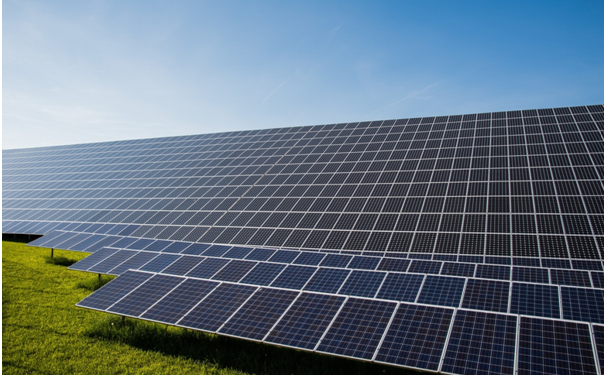According to the U.S. Energy Information Administration, about 38% came from Natural gas, 22% from coal, and 1% from petroleum. This is because most Americans live in areas where the most common source of energy is the burning of fossil fuels, such as natural gas, coal, and petroleum.
Did you know that moving to non-renewable energy sources has caused the world more harm than good? Did you know that is a major reason that the Earth is in its current condition?
The real question now is, how we make a meaningful shift from fossil fuels to solar energy, something that is renewable and much better for our environment.
For example, this renewable solar energy source of electricity can help fight global warming. It can also reduce CO2 emissions and help prevent the water crisis.
In this guide, we will go over why solar is better than fossil fuels and help you understand the environmental benefits of switching to solar power.
What Is a Solar Energy?
In the past decade, the solar industry has seen tremendous growth. Solar energy is now the fastest-growing renewable green energy source in the world.
The switch to solar and how non-renewable energy is destroying our world is a huge topic. Solar energy history tells us humans have used that sunlight for centuries, but only recently have we harnessed its power to generate electricity.
The sun is a constant source of energy that can produce electricity, heat homes and buildings, and power appliances and machinery.
Solar energy is pollution-free, renewable, and sustainable. Unlike fossil fuels, solar energy will never run out. It is abundant, free, and clean.
What Is a Non-renewable Energy?
This energy source doesn’t replenish in a short time. This includes fossil fuels such as coal and oil, as well as nuclear energy. Non-renewable energy sources are finite and will run out.
In the meantime, they are causing serious damage to our planet.
Burning coal and oil releases carbon dioxide and other pollutants into the atmosphere, where they trap heat and cause the Earth’s temperature to rise. This has led to more extreme weather events, such as floods, droughts, and hurricanes.
Besides, this energy can release radioactive materials into the air and water, contaminating food and water supplies.
Benefits of Switching to Solar Energy
The sun is a never-ending source of renewable energy, making solar power a more sustainable and environmentally friendly option compared to non-renewable sources like fossil fuels. Solar panels convert sunlight into electricity, which can then power your home or business.
Solar energy is a clean, emissions-free way to generate electricity, which has a positive impact on our environment and public health.
There are many reasons to switch to solar power, such as:
- Uses less water to operate than traditional power plants.
- Have a long lifespan with little maintenance, which further reduces costs.
- Also offers energy independence, as you are not reliant on the electric grid.
- Does not emit greenhouse gases, which are a leading cause of climate change.
- A cost-effective way to generate electricity, especially in states with high electricity rates.
To power our homes and businesses, we can generate clean, emission-free electricity. At Blue Raven Solar, we believe that switching to solar electricity is a wise financial and environmental decision.
Cost of Non-Renewable Energy
As the world moves further away from using nonrenewable energy sources, the cost of these energy sources continues to rise.
This is because there is a limited supply of these energy sources, and as demand for them increases, so does the price. Most of the world’s energy comes from burning fossil fuels, which is a major contributor to climate change.
This energy is quickly depleted and becomes more expensive, making it difficult for people to maintain a comfortable lifestyle. Extracting and using these energy sources are also increasing, as they become more difficult to find and extract.
The cost of this energy is not only hurting our planet, but it’s also hurting our wallets.
Dangers of Non-Renewable Energy
“Dangers of Non-Renewable Energy” is quite clear that our world is in danger. Using nonrenewable energy sources is causing great harm to our environment and our health. They pollute the air and water and negatively affect public health.
The world continues to grow and expand, and the demand for energy has never been higher. The primary sources of energy that relied upon for centuries are rapidly running out. Oil, coal, natural gas, and all nonrenewable resources.
Not only are they running out, but they are also very dangerous to the environment.
Importance of Switching to Solar Energy
It’s important that we make the switch to solar power to help protect our environment and preserve our world for future generations.
As the effects of climate change become more and more evident, it is clear that we need to find a way to move away from nonrenewable energy sources. Solar energy is one of the most promising renewable energy sources, and it is time for us to switch to solar.
Making the switch to solar energy is not only important for the environment but is also important for the economy. Solar energy is a booming industry, and it is creating jobs all over the world. In the United States alone, the solar industry employs over 200,000 people.
The time to switch to solar energy is now. We need to do everything we can to protect our planet, and switching to solar is one of the best ways to do that.
Switch to Solar Energy Now
If we don’t switch to solar power, we’re going to keep destroying our world. Non-renewable energy sources are a major contributor to climate change and have a negative impact on our environment.
Solar power is a renewable energy source that does not produce greenhouse gases, making it a much cleaner way to produce energy.
Making the switch to solar power can help reduce the amount of pollution in the environment and help prevent climate change.
We hope that you’ve enjoyed reading about why switching to solar is the best decision you can make for our planet. For more information on starting a solar energy system, check out some of our other articles on the subject.




























